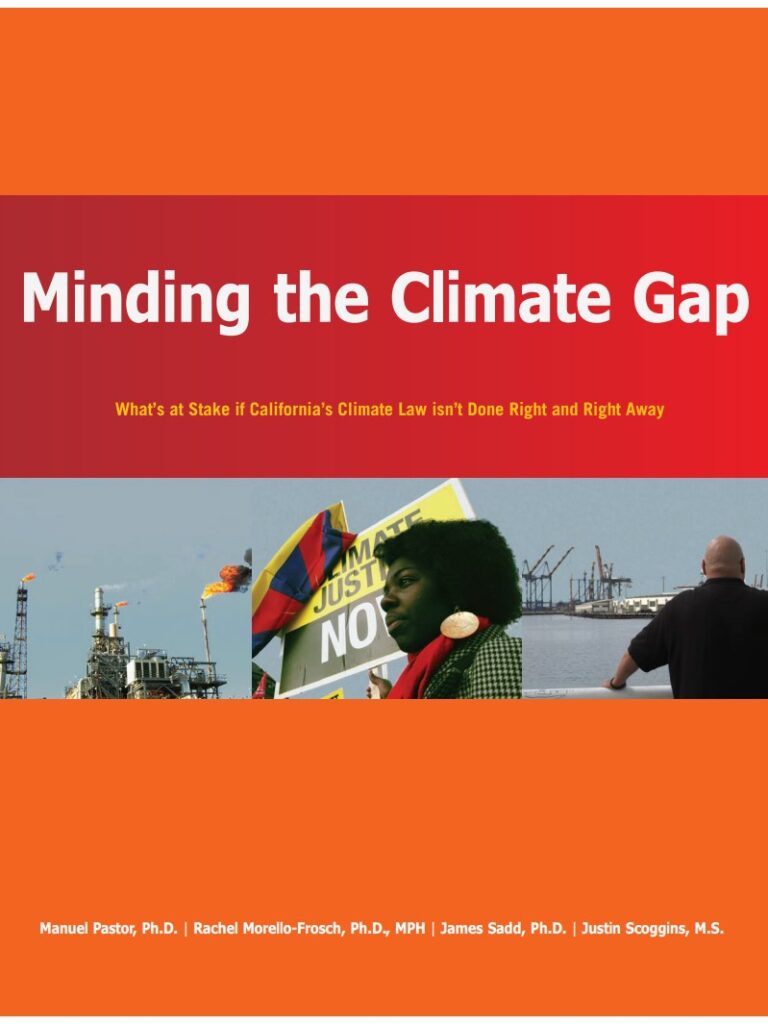
By Manuel Pastor, Rachel Morello-Frosch, James Sadd, and Justin Scoggins
April 2010
Please note: reports dated earlier than June 2020 were published under our previous names: the USC Program for Environmental and Regional Equity (PERE) or the USC Center for the Study of Immigrant Integration (CSII).
Minding the Climate Gap: What’s at Stake if California’s Climate Law isn’t Done Right and Right Away details how incentivizing the reduction of greenhouse gases—which cause climate change—from facilities operating in the most polluted neighborhoods could generate major public health benefits. The study also details how revenues generated from charging polluters could be used to improve air quality and create jobs in the neighborhoods that suffer from the dirtiest air.
-In California, children in poverty, together with all people in poverty, live disproportionately near large facilities emitting toxic air pollution and greenhouse gases.
-People of color in the state experience over seventy percent more of the dangerous pollution coming from major greenhouse gas polluters as whites, and the disparity is particularly sharp for African Americans.
-The racial differential in proximity to pollution is not just a function of income: people of color are more likely to live near these polluting facilities than whites with similar incomes.
-Continuing to move forward with California’s climate law presents the opportunity to save lives and bolster California’s economy by focusing pollution reductions in neighborhoods suffering the worst public health impacts.



